Small rural stores haven’t had an easy ride as challenges come at them from all sides. However, many are finding the future looks bright thanks to a strategy of investing in a diverse range of services, offering products that create a point of difference, and engaging with their community
What makes a sustainable rural convenience store today? There’s no doubting the challenges these out-of-the way stores face: business and wage-related costs; the encroachment of online; and meeting cross-generational demands of providing both traditional community service and up-to-date technology, while also maintaining points of difference.
The ACS Rural Shop Report 2018 found that independent retailers operate 76% of rural stores in the UK, many of whom invest in their businesses and engage with their communities. In fact, rural retailers invested £315m over the past year, resulting in “growth in the breadth and depth of service provision among rural stores,” the report states.
So what are rural retailers investing in? In terms of technology, 71% offer contactless payment; 60% epos; 48% mobile payment; and 17% offer digital advertising screens (ACS Local Shop Report). The likes of potentially labour-saving tech such as digital shelf-edge labels and self-service checkouts have been adopted by only 2%.
In terms of services, 53% now offer cashback – a solution to rural bank closures – 32% accommodate a post office, 29% offer parcel services and a significant 25% a loyalty card.
Food to go is also gaining traction, with 19% of stores now offering customer-operated coffee machines; 17% a hot food cabinet; and 13% a food prep area.
Here we focus on five forward-looking rural retailers to see how they are moving with the times.
Welton’s Great Bowden, Leicestershire
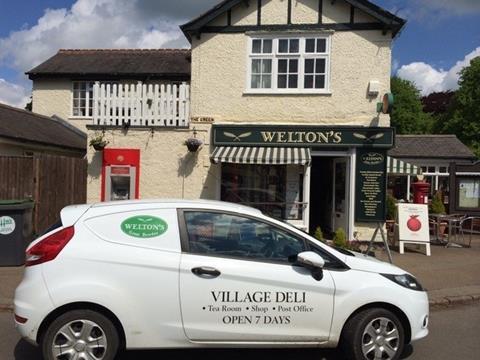
Nicky Ransome’s store is thriving despite the competition thanks to an in-store café, deli, buffet delivery service and evolving product range.
Owner Nicky Ransome has continually stood firm against ever-increasing competition by offering a plethora of services, keeping a forensic eye on the competition, and delivering the timeless customer service that rural stores can do so well.
“Over the past few years a Waitrose opened five minutes’ away, then a Tesco garage, then an M&S Simply Food. Each time we feared the worst, but we’ve managed to keep going,” she says.
The 1,000sq ft store houses a café, seating area, deli and post office Local counter. It also offers dry-cleaning, washing and ironing services, delivering to customers from a van also used for newspaper and buffet deliveries. “We do about five buffet deliveries a day from the café. I did a breakfast delivery for 100 this morning, all pastries, which brought in £250. The client does it regularly,” she says.
The post office works well “as a package”, with parcel collections especially popular. “We had to fight to keep it open,” Nicky says, once again displaying her valuable tenacity.
The store sources from about 50 suppliers, but will act decisively to maintain its point of difference from the competition. “We sold The Pickled Village condiments, until Waitrose did, and cheaper. Now we’ve got our own-branded jams,” she explains.
Her advice to her peers is to stay close to their customers. “People have more time on their hands in rural areas; they could have a whole day talking to no one so we’re providing a valuable service. People like to show off their village shop, too,” she says. “And you’ve got to diversify to make it viable.”
Like many retailers, Nicky’s primary challenge relates to staffing costs. “We want to do more outside catering, but we need more staff. The National Living Wage is a big issue, and pensions more so. I work 100 hours a week to help. The government has helped with National Insurance contributions – any further help would be welcome.”
Nisa Newport, Essex
A recent refit and the introduction of a cashback service and Co-op products have lifted sales at Alan Carr’s store.
Owner Alan Carr embarked on a refit earlier this year, as sales had plateaued and the store was looking tired. “We smartened it up with a suspended ceiling and put in slush, coffee, a second oven,” he says. The store already had food to go and a prep area, but he introduced self-service on the pies to provide a speedier service. “We used to do everything over the counter, which would create a queue. It’s gone phenomenally well.”
Speed of service is important as the store is the Essex village of Newport on the commuter line to London and many customers are short of time.
In the village itself competition is limited to a bakery, but four miles away in Saffron Walden there is an Aldi, Waitrose, Tesco and Tesco Express – so he can’t afford to rest on his laurels.
Alan says offering a broad range of products is essential for rural stores nowadays. “Price is not that important, as long as you’ve got the products on the shelves.” The recently-introduced Co-op range has been a big hit, complementing big brands and local lines including meat from a local supplier.
“It’s also all about service,” he adds. “You’ve got to be there to talk to people, assist the elderly.” The store’s community credentials are impressive. It delivers shopping free for the elderly, takes people home when requested, and sponsors local sports clubs. This summer Alan is also providing all the food for the village fete.
He also emphasises the importance of being “different to everyone else”, and the store’s social media presence is one point of difference. “Before the refit, when sales were a bit flat, we hired a girl to do social media and sales went up 10%. It’s mainly Facebook – she’s really good at it. It’s a lot of silly stuff really, such as ‘There’s really strange clouds above the shop today’. People come in to have a look.”
He has also introduced cashback to provide a quicker money-withdrawal service for customers. “People were queueing to get money from the Post Office counter, so it made sense and about 70% of our turnover is on cards, including contactless, too,” he says. There is also an external charged-for ATM, which is still used a lot.
Sales go from about £30,000 per week to £36,000, and footfall has soared, says Alan.
Dafarn Newydd Store, Llanwddyn, Powys
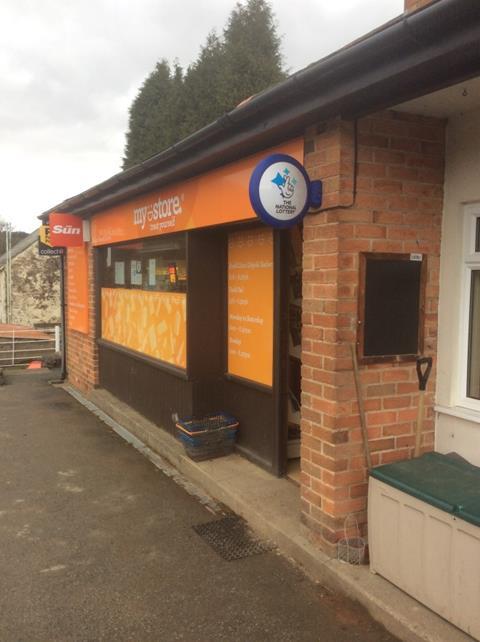
Owner Andrew Johnson has adapted successfully to life without chilled delivery supplier KerryFresh.
Dafarn Newydd Store is in the remote Welsh village of Llanwddyn, not far from Snowdonia National Park. The 600sq ft store was directly affected by the recent collapse of KerryFresh, which delivered about half of its chilled products, including sandwiches. After struggling to find an alternative supplier who would deliver the relatively small order of sandwiches he required, owner Andrew Johnson started making his own.
“After KerryFresh went under we spoke to about four different sandwiches suppliers, who all wanted an awful lot of sandwiches to deliver,” he says. “So in the end we started making our own. We had already converted half of our domestic kitchen into commercial use for our hot takeaway offer, so we made the sandwiches there. Trading Standards told us that if you had your own label, make them on site and you name the ingredients, you don’t need to include allergy information.”
They’re now selling more sandwiches than before, and have hit upon an unexpected point of difference. “We’ve doubled the sales. They’re fresh and have our own brand on. RSPB had a conference here and placed a large order recently,” Andrew continues. “We make the majority without mayo, as people say that all sandwiches have mayo in everywhere else, so people who weren’t buying sandwiches are now buying them.”
The rest of the chilled products that were being delivered by KerryFresh are being delivered by a local supplier, Hughes Quality Foods.
Hot food to go is also the way forward for rural stores, he adds. “We put the takeaway service in in October. We do breakfasts, fish and chips and burgers mainly.”
The store also offers salad and fruit boxes, targeting local caravan parks. “Many of those people are buying the takeaway, too,” Andrew says.
He is excited about the impending introduction of a PayPoint One terminal to the store. “There’s not a huge demand for PayPoint here, but we’re offering a valuable service for those who need it as those customers would otherwise be doing an 18-mile round trip. And at the same time they buy groceries.”
Despite the uncertainty created by KerryFresh’s demise, the future looks bright for Dafarn Newydd Store. “Our sales are up year on year and the past 12-18 months have been the busiest period of trading in the nine years that we’ve been here,” Andrew enthuses.
Taylor’s of Tickhill, Yorkshire
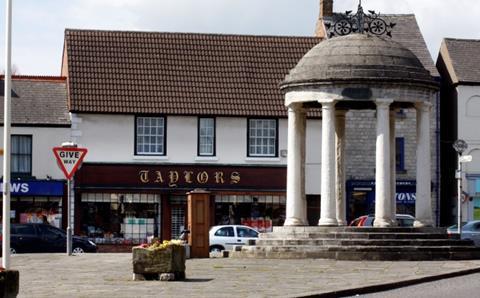
Owner Chris Taylor has successfully promoted the store online with the help of an innovative app, and an increased chilled range is helping lift sales.
Located in a large Yorkshire village of Tickhill, Nisa-supplied Taylor’s of Tickhill has adopted a bespoke solution to harness the internet to drive sales and footfall. The Shop Appy app and website offers a whole village click-and-collect solution, enabling shoppers to order online from other village shops – such as the florist and butcher - at the same time. Crucially, says co-owner Chris Taylor, the website also offers a platform to showcase the store’s products, often resulting in extra footfall and in-store sales from shoppers whose curiosities are piqued – and who didn’t use the site for click and collect.
“Everything’s going online, which is a nightmare for small rural stores,” he says. “How do we deal with that? For us, Shop Appy has been great. We’re getting loads of clicks, which is resulting in lots more footfall. And it’s not just footfall, it’s actual sales.”
For click and collect, the conversion rate is about 3% at the moment which, for a £20 monthly fee, Chris describes as a bargain.
In terms of the product range, the store is selling far more chilled than ambient grocery than in the past, aided by the huge walk-in chiller. “Supermarkets take care of the boring stuff like toilet roll and pet food – people are buying this stuff online, and chilled, short-shelf life product from us. We have a walk-in chiller, bigger than most people’s bedrooms, so we’re able to carry a lot of chilled stock,” he says.
The store offers a customer account service to drive loyalty, which they set up using Nisa software. “It does a lot for customer loyalty but it’s not good for our cashflow,” Chris laughs. “About 25% of turnover is on account. We ask for month-end payments plus two weeks’ notice, so in theory people have up to six weeks until they have to pay.”
The short-term cashflow pain is worth the long-term gain – sales at the 2,500sq ft store are currently up 4.4% year on year.
Otley Village Store, Suffolk
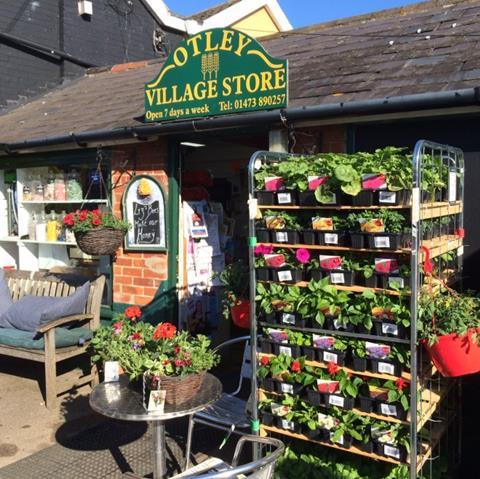
A loyalty card scheme, post office fortress, a ‘Wine Lodge’ and a plethora of services are some of the ways the Sunaways have met rising consumer expectations.
Andrew and Penny Sunaway bought Otley Village Store in rural Suffolk in 2004. They immediately set about making their mark on the 1,000sq ft Londis-supplied store, bringing in Calor Gas, bedding plants, homemade sandwiches, a dry-cleaning service and even a barn out the back to house discounted wines in a ‘Wine Lodge’.
However, after a few years they had to evolve again. “Sales started to drop off a bit when a factory opposite moved and we lost about 10% of our customers – many of whom would come in for food to go. So we had to rehabilitate a bit,” Andrew explains.
They took the decision to replace homemade rolls and sandwiches after finding a local supplier which operated a sale or return policy. They also introduced hot food to go, supplied by Country Choice and a local sausage roll producer, as well as charcoal and kindling.
Last year, instead of embarking on a major refit, they invested £10,000 in a new 2.5 metre chiller to facilitate a larger chilled range. “Sales have increased considerably as we can display a lot more chilled food such as ready meals,” Andrew says.
He stresses the importance of having the backing of a symbol group. “I’m blessed that I’m with Londis, which is the best it’s been since Booker took over. We’ve got access to Euroshopper, which is going pretty well, and Happy Shopper. I used to pooh-pooh both brands, but the Happy Shopper biscuits are really popular,” he says.
Andrew believes that the main difference between now and when he first started in retail is customers’ higher expectations. “People have to see you’re serious about your business – you need to constantly invest.”
Displaying a broad range and total availability are helping meet this expectation, “or people won’t rely on coming to you on the way back from work”. Indeed, the Sunaways never take their optimum location for granted – “we’re miles from the nearest competition”.
To drive customer loyalty, they launched a loyalty card scheme 18 months ago. Under the scheme, every £10 spent earns a star – once 10 stars are accrued, the user gets £10 off the next shop.
The post office fortress is a valuable community service, especially with banking given that many local bank branches are closing. All in all, business is thriving, Andrew reports.
















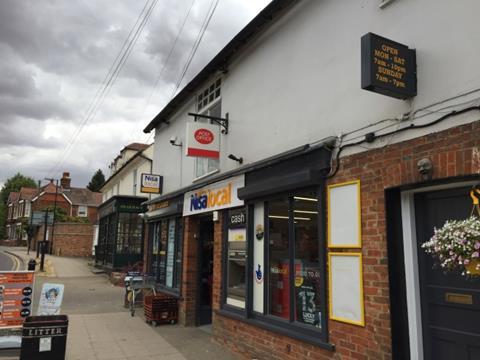



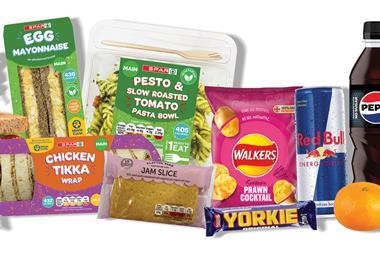






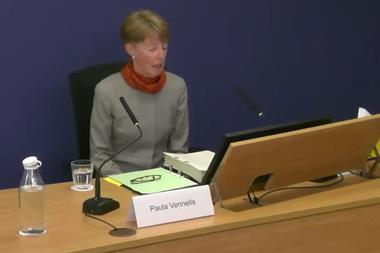

No comments yet